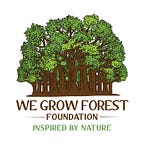ENVIRONMENTAL RACISM
Specific communities are disproportionately loaded with health hazards through policies and practices that cause them to live close to sources of toxic waste such as sewage works, landfills, power stations, mines, major roads and emitters of airborne particulate matter. As a result, these societies suffer greater rates of health problems attendant to hazardous pollutants. This phenomenon is known as Environmental Racism. The term, ‘environmental racism,’ was coined by the African American civil rights leader Benjamin Chavis.
In India, the term can be defined as racial discrimination in environmental decision-making, policy-making and enforcement of environmental rules and laws, especially against tribal people living in the outbacks and borderlands of the country. The tribals in the Northeast have always endured living in harmony with nature. However, consecutive governments have tried to use their celibacy to pursue their interests. This, to the extent that today tribal groups comprise 40–50% of the displaced population in India. This crooked phenomenon needs to be addressed before it’s too late. The price of economic development can’t be the destruction of the ecology and ethnicity of the land. Economic development and environmental sustainability should be complementary, not at the cost of one another.
ENVIRONMENTAL JUSTICE IS THE MOVEMENT TO ENSURE THAT NO COMMUNITY SUFFERS DISPROPORTIONATE ENVIRONMENTAL BURDENS OR GOES WITHOUT ENJOYING FAIR ENVIRONMENTAL BENEFITS.
Environmental racism is an instance of ecological bigotry, a type of fundamental prejudice whereby people of colour and economically weaker sections are troubled with well-being perils through arrangements and practices that compel them to live in the vicinity of harmful material, for example, sewage works, mines, landfills, power stations, busy streets and producers of airborne particulate issue. Accordingly, people are exposed to a hazardous, poisonous environment that has polluted water and air and thus affects their health terribly. Environmental justice should be in the limelight so that people can claim their rights to breathe fresh air and drink clean water irrespective of their economic conditions.
Vilappilsala is a classic example of environmental racism prevalent in the current world of increasing disparity in terms of rights and wealth. Kerala is known for its literacy and crisis management skills which were exemplified in the past. However, god’s own country is still lagging when it comes to proper waste management and disposal. Due to increasing urbanisation and dense population, the shortage of land is a significant problem. This has also generated massive waste but nowhere to dump it.
The sociological analysis highlights the reasons behind the authority’s decision in choosing Vilappilsala, Thiruvananthapuram, as a dumping ground for urban waste. The primary reason lies in the waste-generating population’s economic conditions and the people who are experiencing the brunt of waste disposal in the city’s suburbs.
Thus, to solve the problem of environmental racism, people should claim environmental justice. Delhi’s winter air chokes people, rivers that are a source of livelihood for the poor fishers are polluted by big industries, sewage system and solid waste management are not up to the mark. The ones who bear the brunt of these issues are the poor due to the increasing appetite of the rich for commodities, resulting in the pollution of the environment. India has an abysmal record of compliance with environmental regulations and violations that have real and profound effects on people’s lives. Invariably, local communities are absent from the processes that oversee environmental assessments and the management of ecological impacts.
To know more about We Grow Forest Foundation please visit our website https://wegrowforest.org/ or contact us at on 9778411911 or email at us plant@wegrowforest.org
